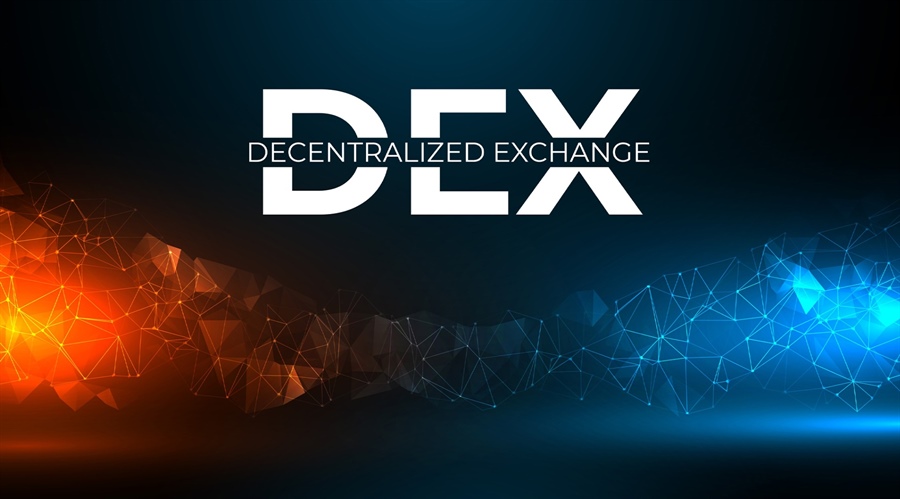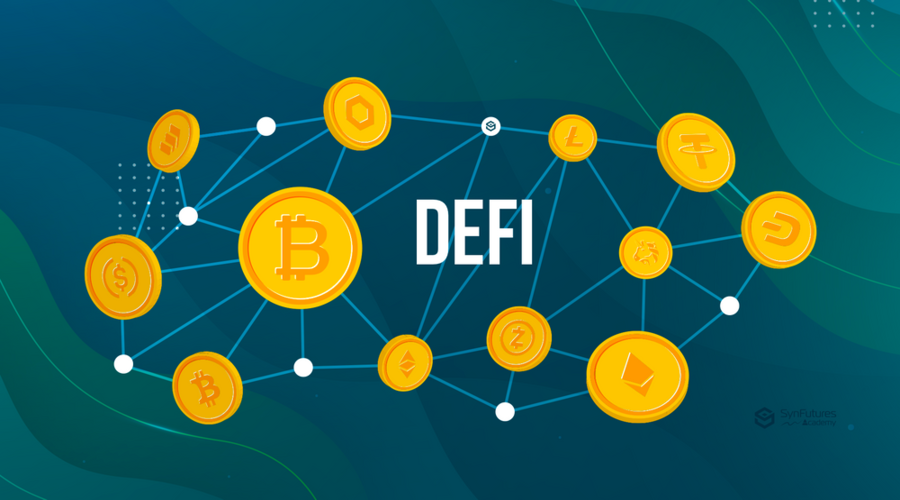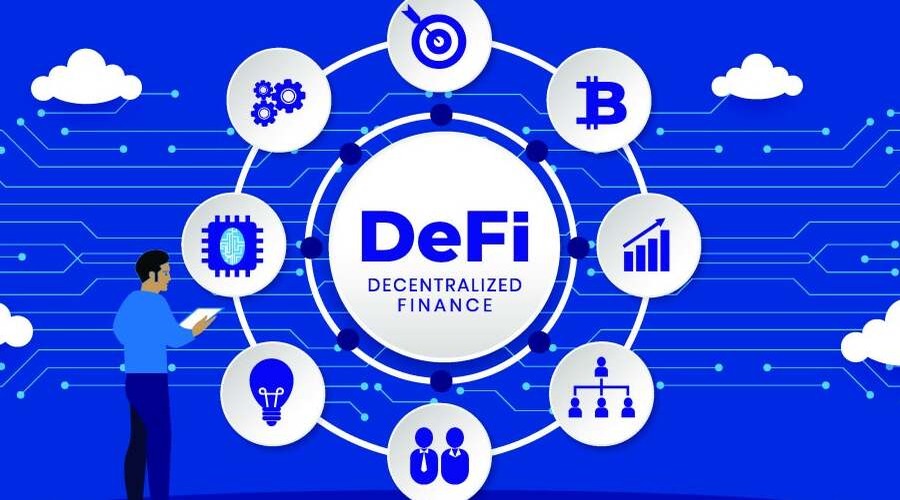Introduction
Decentralized exchanges (DEXs) are a popular and promising use case for blockchain technology, allowing users to trade tokens without intermediaries. However, DEXs can be vulnerable to various security risks, such as front-running attacks and exchange hacks. This article explores the different types of vulnerabilities present in DEXs and provides pointers and best practices for protecting against these risks.
Smart Contract Vulnerabilities
Smart contracts are a critical component of DEXs, facilitating the execution of trades and ensuring the integrity of transactions. However, smart contracts can also introduce potential security risks and vulnerabilities, such as coding errors, exploits, and vulnerabilities. To protect against smart contract vulnerabilities, DEX operators should conduct thorough smart contract audits and testing and choose reputable and secure smart contract development teams.
Governance Vulnerabilities
Decentralized governance is a key feature of DEXs, allowing users to participate in decision-making processes without intermediaries. However, decentralized governance can also introduce potential security risks and vulnerabilities, such as governance attacks, rug pulls, and governance token vulnerabilities. To protect against governance vulnerabilities, DEX operators should conduct thorough research on governance mechanisms and avoid protocols with questionable governance practices.
Liquidity Pool Vulnerabilities

Liquidity pools are a critical component of DEXs, allowing users to trade tokens and earn rewards through liquidity provision. However, liquidity pools can be vulnerable to various security risks, such as liquidity pool attacks and impermanent loss. To protect against liquidity pool vulnerabilities, DEX operators should choose DEX protocols with strong security measures and avoid investing in protocols with questionable liquidity pool practices.
Exchange Hacks
Exchange hacks are a common and serious threat to the security and integrity of DEXs. Exchange hacks refer to the theft of funds from a DEX through exploits or vulnerabilities. To protect against exchange hacks, DEX operators should choose reputable and secure DEXs and employ strong security measures, such as multi-factor authentication and cold storage of funds.
Front-Running Attacks
Front-running attacks involve exploiting vulnerabilities in the order book to execute fraudulent trades before other users. To protect against front-running attacks, DEX operators should employ strong security measures, such as transaction batching and prioritization.
Flash Loan Attacks
Flash loan attacks involve taking advantage of DeFi protocols that offer flash loans, which are loans that are granted and repaid within a single transaction. Attackers can use these loans to manipulate prices or execute fraudulent transactions. To protect against flash loan attacks, DEX operators should conduct thorough risk assessments and choose protocols with strong security measures and risk management practices.
Social Engineering Attacks
Social engineering attacks involve tricking users into divulging sensitive information, such as private keys or passwords, through manipulation or deception. To protect against social engineering attacks, DEX operators should educate users on best practices for security, such as avoiding sharing sensitive information online and using two-factor authentication.
Code Forks
Code forks occur when a new version of a DeFi protocol is created that is incompatible with the previous version. Code forks can introduce potential security risks and vulnerabilities, such as the introduction of malicious code or the exploitation of vulnerabilities in the original protocol. To protect against code forks, DEX operators should conduct thorough research on the history and development of a DeFi protocol and avoid investing in untested or suspicious projects.
Smart Contract Upgrades
Smart contract upgrades are a critical component of DeFi protocols, allowing developers to improve and update the functionality of a protocol. However, smart contract upgrades can also introduce potential security risks and vulnerabilities, such as the introduction of new bugs or vulnerabilities. To protect against smart contract upgrade vulnerabilities, DEX operators should conduct thorough smart contract audits and testing and avoid investing in protocols with questionable smart contract development practices.
Privacy Vulnerabilities
Privacy is a critical concern for many DeFi users, as the transparent nature of blockchain transactions can compromise user privacy. DeFi protocols can be vulnerable to various privacy risks and vulnerabilities, such as the leakage of sensitive information through blockchain analysis or the exploitation of vulnerabilities in privacy-preserving protocols. To protect against privacy vulnerabilities, DEX operators should choose protocols with strong privacy-preserving mechanisms and educate users on best practices for protecting their privacy.
Open Source Vulnerabilities
DeFi protocols are often built on open-source software, which can introduce potential security risks and vulnerabilities, such as the exploitation of vulnerabilities in open-source libraries or the introduction of malicious code by third-party contributors. To protect against open-source vulnerabilities, DEX operators should conduct thorough code reviews and testing, and choose reputable and secure development teams.
Token Vulnerabilities
Tokens are a critical component of many DeFi protocols, allowing users to participate in governance, receive rewards, and access certain features. However, tokens can also introduce potential security risks and vulnerabilities, such as the exploitation of vulnerabilities in token smart contracts or the loss of tokens due to fraudulent activity. To protect against token vulnerabilities, DEX operators should choose protocols with strong security measures and risk management practices, and educate users on best practices for protecting their tokens.
User Error Vulnerabilities
User error vulnerabilities can introduce potential security risks and vulnerabilities, such as the loss of private keys or the exposure of sensitive information. To protect against user error vulnerabilities, DEX operators should educate users on best practices for security, such as the use of password managers and the avoidance of suspicious websites and phishing attempts.
Market Manipulation
Market manipulation is a significant threat to the integrity of DeFi protocols, particularly with the increasing use of automated market makers (AMMs) and decentralized finance platforms. Market manipulation can take many forms, such as wash trading, spoofing, and pump and dump schemes. To protect against market manipulation, DEX operators should conduct thorough risk assessments and employ strong market surveillance measures.
Oracle Attacks
Oracles are critical components of many DeFi protocols, providing external data to smart contracts and facilitating the execution of complex transactions. However, oracles can be vulnerable to various security risks and vulnerabilities, such as oracle attacks, data manipulation, and data delays. To protect against oracle vulnerabilities, DEX operators should choose reputable and secure oracles and employ strong oracle security measures.
Regulatory Risks
Regulatory risks are an ever-present concern for DeFi operators, particularly with the increasing scrutiny of regulators and policymakers around the world. DeFi protocols can be subject to various legal and regulatory risks, such as securities laws, money transmission laws, and anti-money laundering regulations. To protect against regulatory risks, DEX operators should conduct thorough legal and regulatory research, comply with applicable laws and regulations, and engage with regulators and policymakers in a transparent and proactive manner.
Insurance and Compensation
Insurance and compensation mechanisms are critical components of a robust DeFi ecosystem, providing protection against various security risks and vulnerabilities. Insurance and compensation mechanisms can take many forms, such as insurance funds, decentralized insurance protocols, and compensation mechanisms for security breaches. To protect against security risks and vulnerabilities, DEX operators should choose protocols with strong insurance and compensation mechanisms and educate users on best practices for securing their assets.
Liquidity Risks
Liquidity risks are a significant concern for many DeFi protocols, particularly with the increasing use of AMMs and decentralized exchanges. Liquidity risks can arise from various factors, such as low trading volumes, slippage, and impermanent loss. To protect against liquidity risks, DEX operators should employ strong liquidity management practices, such as market-making, liquidity mining, and incentivizing liquidity providers.
Governance Risks
Governance risks are a significant concern for many DeFi protocols, particularly with the increasing use of decentralized autonomous organizations (DAOs) and governance tokens. Governance risks can arise from various factors, such as the concentration of voting power, the manipulation of voting outcomes, and the introduction of malicious proposals. To protect against governance risks, DEX operators should choose protocols with strong governance mechanisms and engage with the community in a transparent and democratic manner.
Centralization Risks
Centralization risks are a significant concern for many DeFi protocols, particularly with the increasing use of centralized exchanges and custodians. Centralization risks can arise from various factors, such as the concentration of power, the introduction of single points of failure, and the lack of transparency and accountability. To protect against centralization risks, DEX operators should choose protocols with strong decentralization mechanisms and promote the use of non-custodial wallets and exchanges.
Education and Awareness
Education and awareness are critical components of a secure and robust DeFi ecosystem, as many security risks and vulnerabilities can be mitigated through user education and awareness. DEX operators should invest in education and awareness campaigns to educate users on best practices for security, such as the use of hardware wallets, the avoidance of suspicious websites and phishing attempts, and the importance of conducting thorough research before investing in DeFi protocols.
Conclusion
In conclusion, DEXs are vulnerable to various security risks and vulnerabilities, including smart contract vulnerabilities, governance vulnerabilities, liquidity pool vulnerabilities, exchange hacks, and front-running attacks. To protect against these risks, DEX operators should conduct thorough research on DEX protocols, choose reputable and secure exchanges and oracles, and employ strong security measures. Additionally, compliance with applicable laws and regulations can help mitigate legal and regulatory risks.



